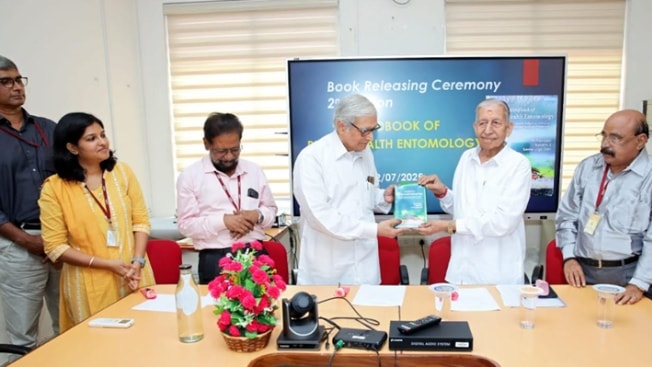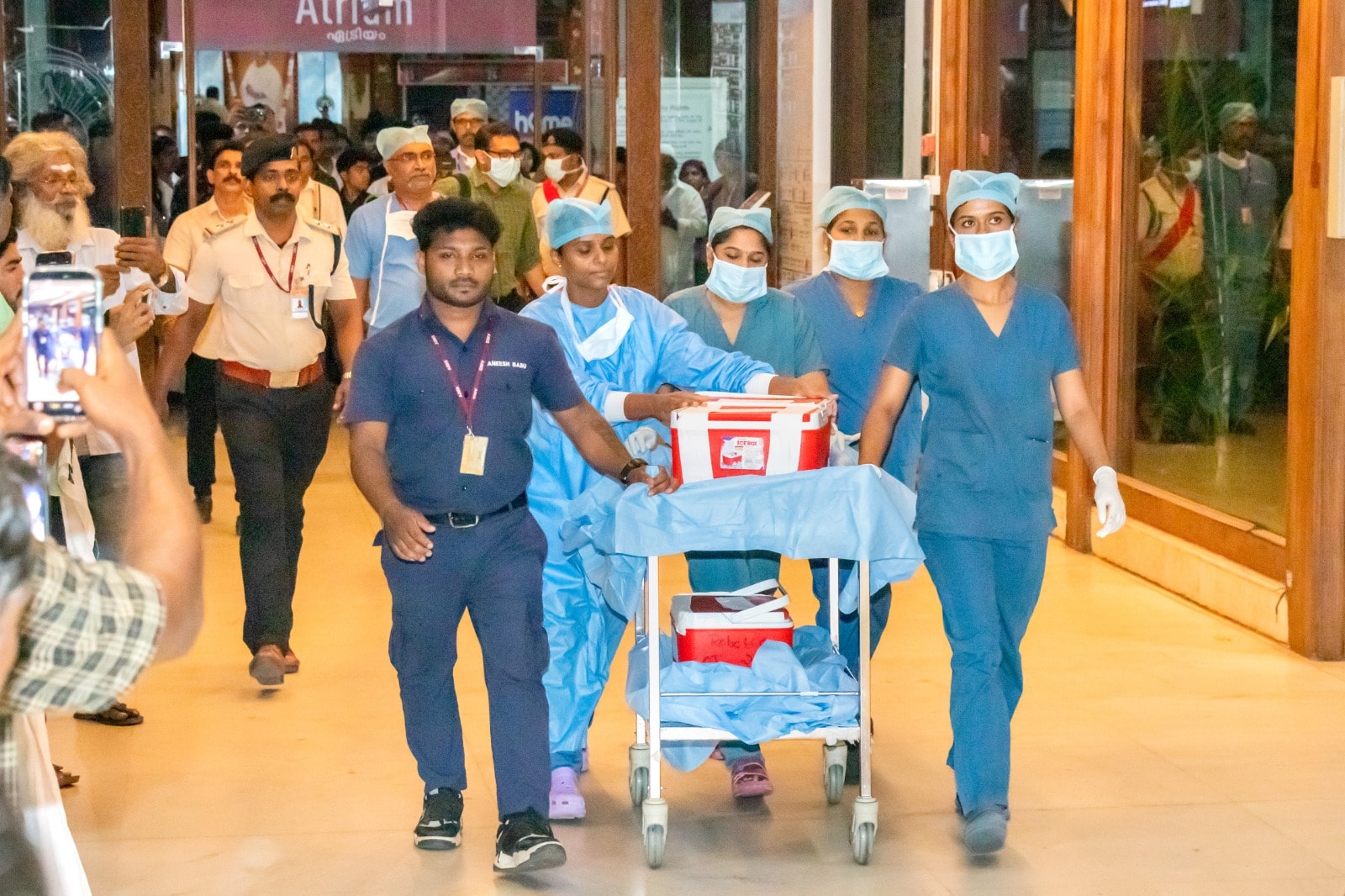
Amrita Hospital Kochi released a significant academic resource, the "Handbook of Public Health Entomology", a comprehensive guide tailored for medical students, public health professionals, and healthcare practitioners.
Authored by Dr. K. N. Panicker, Professor Emeritus, and Dr. Navami S, Assistant Professor in the Department of Community Medicine at Amrita Hospital Kochi, this second edition of the handbook, published by Paras Medical Books, fills a crucial gap by providing updated, practical, and context-specific learning material in the field of Medical and Public Health Entomology.
The book focuses on vector control and prevention strategies, key in addressing vector-borne diseases. It provides detailed information about arthropods of medical importance such as mosquitoes, sand flies, ticks, mites, and fleas, along with their transmission mechanisms, ecology, and control strategies suited to local and regional needs.
Key Features of the Handbook include:
- Comprehensive coverage of medically significant arthropods, including mosquitoes, sand flies, ticks, and other vectors.
- Detailed explanations of disease transmission, vector ecology, and effective control strategies.
- A ready reference for healthcare professionals managing outbreaks and epidemics.
- Special chapters on cyclops, acid flies, and entomological indices, enriching the learning experience.
- Simple, accessible language designed for learners from diverse healthcare backgrounds.
Dr. K. N. Panicker, a globally recognized expert in tropical disease control, has contributed significantly to the development of vector-borne disease control strategies through his work with esteemed organizations such as the WHO, ICMR, and the Rockefeller Foundation. Dr. Navami S, an emerging expert in environmental health and epidemiology, has added valuable insights from her role at Amrita Hospital Kochi. The Handbook of Public Health Entomology is a pivotal addition to the field of public health education, ensuring that students, practitioners, and researchers have access to high-quality, contextually relevant academic resources.


